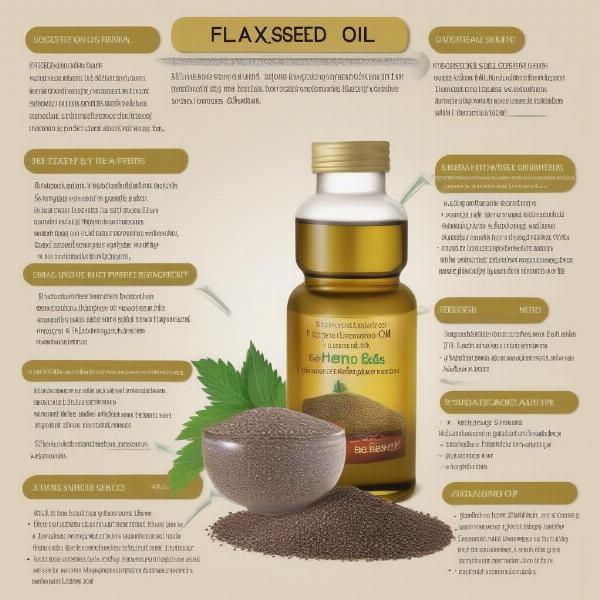A vegetarian dog food recipe can be a healthy and ethical choice for your furry friend, but it’s crucial to ensure it meets all their nutritional needs. Creating a balanced vegetarian diet for your dog requires careful planning and an understanding of canine dietary requirements. This comprehensive guide will walk you through everything you need to know about preparing delicious and nutritious meat-free meals for your dog.
Essential Nutrients for Vegetarian Dogs
Unlike obligate carnivores like cats, dogs are omnivores and can thrive on a well-planned vegetarian diet. However, simply removing meat isn’t enough. A balanced vegetarian dog food recipe must include essential nutrients like protein, amino acids, fatty acids, vitamins, and minerals, typically found in meat.
Protein Powerhouses for Plant-Based Diets
Protein is the building block for healthy muscles, tissues, and organs. While meat is a rich protein source, vegetarian dog food recipes can utilize plant-based alternatives like lentils, beans, quinoa, and tofu.
Ensuring Sufficient Amino Acid Intake
Dogs require specific amino acids, the building blocks of protein. While plant-based proteins contain amino acids, they may not have all the essential ones in the right proportions. Supplementing with specific amino acids like taurine and L-carnitine might be necessary.
The Importance of Fatty Acids in a Vegetarian Diet
Fatty acids are crucial for healthy skin, coat, and brain function. While meat contains essential fatty acids, vegetarian dog food recipes can incorporate sources like flaxseed oil, chia seeds, and hemp oil to meet these needs.
 Vegetarian Dog Food Essential Fatty Acids
Vegetarian Dog Food Essential Fatty Acids
Creating a Balanced Vegetarian Dog Food Recipe
A balanced vegetarian dog food recipe should include a variety of ingredients to provide a complete nutritional profile. Here’s a sample recipe to get you started:
- Lentils: 1 cup cooked
- Brown rice: 1/2 cup cooked
- Sweet potato: 1/2 cup cooked and mashed
- Carrots: 1/4 cup chopped and cooked
- Spinach: 1/4 cup chopped and cooked
- Flaxseed oil: 1 tablespoon
- Nutritional yeast: 1 teaspoon (for B vitamins)
Remember to consult with your veterinarian before transitioning your dog to a vegetarian diet, especially if they have any pre-existing health conditions. They can help you determine the appropriate portion sizes and any necessary supplements. vegan diet for dogs recipes offers further information on this topic.
Is a Vegetarian Diet Right for My Puppy?
Puppies have specific nutritional needs for growth and development. While a vegetarian diet can be suitable for puppies, it requires extra care to ensure they receive all the necessary nutrients in the correct amounts. Consult with a veterinary nutritionist to create a balanced vegetarian puppy food plan.
Senior Dogs and Vegetarian Diets
Senior dogs may also benefit from a vegetarian diet, particularly if they have digestive issues or certain health conditions. However, it’s important to monitor their weight and adjust their diet accordingly as their metabolic needs change with age.
Common Concerns about Vegetarian Dog Food
Many dog owners have concerns about the potential risks of a vegetarian diet. Let’s address some of these common concerns.
Will My Dog Get Enough Protein on a Vegetarian Diet?
Yes, with careful planning. Plant-based protein sources like lentils, beans, and tofu can provide adequate protein for dogs. non meat dog treats can be a good addition to their diet as well.
What About Essential Amino Acids?
While plant-based proteins contain amino acids, they may not always provide all the essential ones in the right balance. Supplementing with specific amino acids, as recommended by your veterinarian, can ensure your dog receives everything they need.
Transitioning Your Dog to a Vegetarian Diet
Transitioning your dog to a vegetarian diet should be gradual. Start by introducing small amounts of vegetarian food mixed with their regular food and gradually increase the proportion of vegetarian food over several weeks. This helps prevent digestive upset and allows your dog to adjust to the new diet. You can find more information about dog food from Korea at dog food korea.
Conclusion
A well-planned vegetarian dog food recipe can be a healthy and compassionate choice for your canine companion. By understanding their nutritional needs and using a variety of plant-based protein sources, you can create delicious and nutritious meat-free meals that keep your dog happy and healthy. Always consult with your veterinarian before making any significant dietary changes for your dog. They can help you create a balanced vegetarian diet that meets your dog’s individual needs.
FAQ
- Is a vegetarian diet safe for dogs? Yes, a well-planned vegetarian diet can be safe and healthy for dogs.
- What are the best protein sources for vegetarian dog food? Lentils, beans, quinoa, tofu, and other legumes are excellent protein sources for vegetarian dogs.
- Do vegetarian dogs need supplements? Some vegetarian dogs may require supplements like taurine, L-carnitine, and certain B vitamins. Your veterinarian can help determine if supplements are necessary.
- How do I transition my dog to a vegetarian diet? Gradually introduce vegetarian food mixed with their regular food over several weeks.
- Can puppies eat a vegetarian diet? Yes, but it’s crucial to work with a veterinary nutritionist to ensure their nutritional needs are met.
- Are there any potential risks of a vegetarian diet for dogs? Nutritional deficiencies are possible if the diet isn’t properly balanced. Regular veterinary check-ups are essential.
- Where can I find more vegetarian dog food recipes? potato mozzarella corn dog and korean corn dog online might give you some ideas for tasty vegetarian treats.
ILM Dog is a leading online resource for dog owners worldwide, offering expert advice on dog breeds, health, training, nutrition, grooming, and more. From puppy care to senior dog care, we cover every aspect of dog ownership. Our team of experts provides valuable insights and practical tips to help you provide the best possible care for your furry friend. Contact us at [email protected] or +44 20-3965-8624 to learn more about our services. Visit ILM Dog for expert advice on all things dog-related.